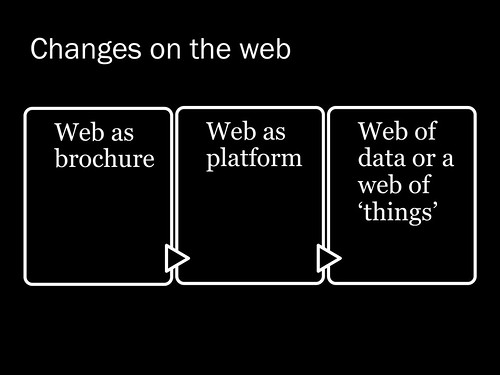This post on what I am calling influence singularity (and some other trends) came from discussions whilst travelling. I have been on the road a fair bit and have speaking to a number of people coming from all aspects of communications and marketing. Speaking to these different people has covered a lot of areas but three trends stood out:
- Influence singularity
- Welcome to your new press spokesperson, your customer care rep
- Inhouse vs. agency
I have explored these trends in a bit more depth below.
Influence singularity
Increasingly we are seeing agencies of all ilks: PR, advertising, marketing, digital and everything in between are descending on the area of influence – creating an influence singularity. This influence manifests itself primarily through social media and digital; though it can manifest itself in experiential events like un-conferences and meet-ups. One of the best campaigns I have come across was the RNLI’s efforts to engage with young people.
RNLI
A social media campaign thought through and brought to life by a direct marketing agency: they saw the interaction in a similar way to the relationship between an organisation and the recipient of a direct mail piece. Instead of a purchase call to action, they provided a task to be completed. It is not only at agencies where this conflict is happening, I hear anecdotally that marketers are having PR discussions both online and offline actvities and carving it up with no PR people involved.
The communications heads that were left out instead retreated to focus purely on corporate communications: outflanked, outgunned and out of their depth in a digital world. PR agencies where they have been involved, are often working with marketing managers as the inhouse PR people are not clued in.
A secondary aspect of this, is that where the role is reversed and the PR department has led on social media, they are now having their efforts hijacked by marketers playing catch-up – because the marketers feel that they should be the owner, have better budgets and often have the ear of the board.
This then begs the question: does PR the profession, its practitioners and the business need to have a rapid rebrand as a profession before it becomes roadkill?
Welcome to the new press spokesperson: your customer care rep
Back in 2004, I wrote a blog post about some comments that Microsoft CEO Steve Ballmer had made about iPod owners having devices full of stolen music. I dashed off a missive to Microsoft.com’s customer service form and got a response.
At the time John Lettice, when writing about the affair in The Register said:
We’re sure iPod owners will regard being called law-abiding by an exec from a company with Microsoft’s legal experience as a high point to end the week on. But, you ask, how the blazes did we get to this one? We have Ged Carrol’s blog to thank. Mightily offended by Ballmer’s original comments, Ged used the feedback system at microsoft.com to demand an apology, and he got one. The possibility of feedback systems of this ilk actually working had never occurred to The Register, so we’ve never bothered trying, but if you want your very own grovel, insert your outraged howls here.
At that time, journalists didn’t think of customer care representatives as a source of comment. Six years later and with social media on tear, the customer care representative is increasingly on the frontline of reputation management.
Some of the discussions I have been involved with has been about the interface between PR and customer services. Where is the overlap? How do you ensure efficient and effective task management between the two? The last question is being addressed with solutions from the likes of Brandwatch and Salesforce.com.
Inhouse vs. agency
I was discussing in-house versus agency with some people recently and one of the key points they made was that whilst agencies provide flexibility in terms of manpower and access to tools that an in-house team couldn’t justify because of cost, social media’s need for immediate and decisive responsiveness required organisations to re-address their in-house requirements and expand their current capability. This is a great opportunity for measurement companies, other organisations that provide ‘horizontal’ services and e-lance digital communications people to interject as these considerations are being made. It may also cause some agencies to start thinking about what an agency means and how they can change the structure of their offering to ensure that they remain relevant.




